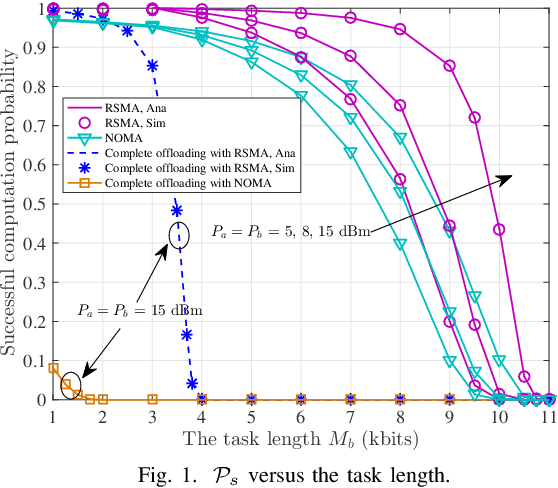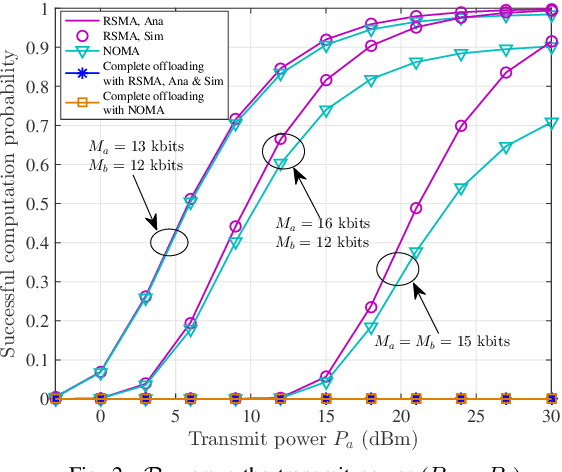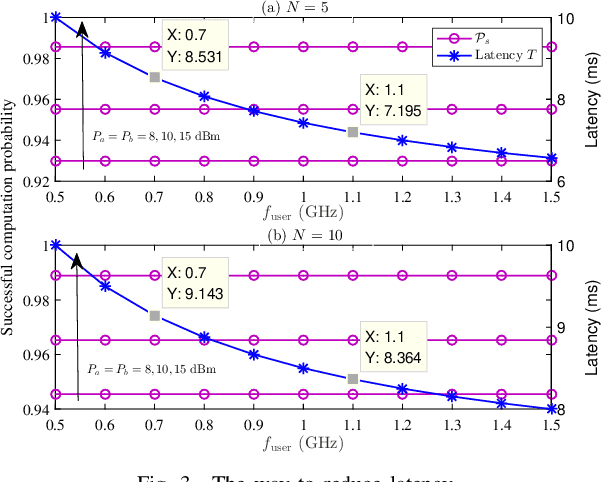Zhiquan Bai
Reconfigurable Intelligent Surface Enabled Joint Backscattering and Communication
Aug 21, 2023Abstract:Reconfigurable intelligent surface (RIS) as an essential topic in the sixth-generation (6G) communications aims to enhance communication performance or mitigate undesired transmission. However, the controllability of each reflecting element on RIS also enables it to act as a passive backscatter device (BD) and transmit its information to reader devices. In this paper, we propose a RIS-enabled joint backscattering and communication (JBAC) system, where the backscatter communication coexists with the primary communication and occupies no extra spectrum. Specifically, the RIS modifies its reflecting pattern to act as a passive BD and reflect its own information back to the base station (BS) in the backscatter communication, while helping the primary communication from the BS to the users simultaneously. We further present an iterative active beamforming and reflecting pattern design to maximize the user average transmission rate of the primary communication and the goodput of the backscatter communication by solving the formulated multi-objective optimization problem (MOOP). Numerical results fully uncover the impacts of the number of reflecting elements and the reflecting patterns on the system performance, and demonstrate the effectiveness of the proposed scheme. Important practical implementation remarks have also been discussed.
* 11 pages, 8 figures, published to IEEE TVT
Rate Splitting Multiple Access Aided Mobile Edge Computing in Cognitive Radio Networks
Apr 13, 2022


Abstract:In this paper, we investigate rate splitting multiple access (RSMA) aided mobile edge computing (MEC) in a cognitive radio network. We propose a RSMA scheme that enables the secondary user to offload tasks to the MEC server utilizing dynamic rate splitting without deteriorating the primary user's offloading. The expressions for the optimal rate splitting parameters that maximize the achievable rate for the secondary user and successful computation probability of the proposed RSMA scheme are derived in closed-form. We formulate a problem to maximize successful computation probability by jointly optimizing task offloading ratio and task offloading time and obtain the optimal solutions in closed-form. Simulation results clarify that the proposed RSMA scheme achieves a higher successful computation probability than the existing non-orthogonal multiple access scheme.
 Add to Chrome
Add to Chrome Add to Firefox
Add to Firefox Add to Edge
Add to Edge